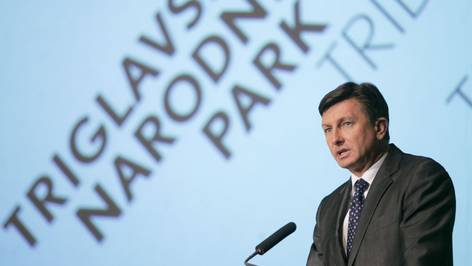NEWS
Prime Minister Borut Pahor attends the ceremony on the occasion of the 30th anniversary of the Triglav National Park
The Prime Minister of the Republic of Slovenia, Mr Borut Pahor, this evening attended a ceremony on the occasion of the 30th anniversary of the Triglav National Park at Bled, where he also addressed the participants. According to Mr Pahor, rich nature with well-preserved natural resources is a distinct development advantage for Slovenia and a preliminary condition for its long-term existence. In 2010, the Triglav National Park saw the adoption of a new act which replaced the original act from 1981. Prime Minister Pahor believes that “we have finally come to certain solutions that raise hopes and expectations that the park will not only remain an example of natural heritage but also an example of its fusion with hopes and expectations of the current and forthcoming generations wishing to live in the Park area.”
Prime Minister Pahor went on to emphasise that this act provided the Park with a new legal framework and the necessary fresh start to look for solutions representing a modern approach to the administration of this protected area that is of such a great importance for Slovenia.". In this context, the Primer Minister expressed his belief that the new act did not provide for a complete restructuring of the Park's administration but rather consolidated its existing foundations with due respect to past experiences. By adopting this new act, the Government created the conditions for a further improvement of protection efficiency, enhance the participation of other sectors in the Park's administration and strengthen the support to improve the lives of local Park residents, added Prime Minister Pahor. At the close of his address, Prime Minister Pahor gave his assurance that “the Government, in cooperation with all relevant government bodies, actively pursues the implementation of these objectives and thus contributes to the application of principles of sustainable development in everyday life in the Julian Alps area.”




